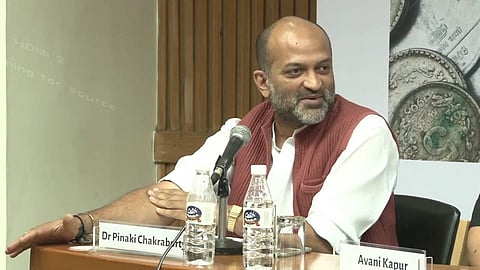

THIRUVANANTHAPURAM: Global debt, both public and private, has increased manifold during the last decade which poses a serious threat even to the existence of common people across the globe, said Pinaki Chakraborty, eminent economist and former director of NIPFP.
Delivering Professor I S Gulati centenary lecture on the third day of the International conference on 'Rethinking public Finance for Emerging development challenges', he said that the total global debt increased in recent times to 237 per cent of the world GDP.
The total debt of individual households had increased to 94 per cent of the GDP.
The huge increase in household debt in India is alarming and creates serious issues in the development and investment of the country. He said that the total household debt in India during 2010-11 was 8 per cent of GDP and has now edged up to 37 per cent which is quite annoying.
According to him, the sizable increase in private debt in turn affects the size of financial savings in India. The accruing debt is a serious concern and this may create big problems to banking and financial institutions. The net financial savings had plummeted during the last few years, he added.
He also said that the volume of direct benefit transfer has dropped in India although governments are increasing budgetary allocations to social security measures. This has dropped from 20 per cent to 15 per cent during the last five years . Another pressing issue, according to him, is the unprecedented increase in the level of inequality in the global economy . The divide is expanding in inter country and inter personal levels, he said.
Dr. Thomas Issac, former Finance Minister of Kerala said that development issues would not be discussed fruitfully without reducing international disparity.
He said that developed and rich countries are keeping away from global issues like climate change which put added pressure on developing and poor nations. Poor nations are suffering heavily due to the pressing issues like climate change.
Former Finance Minister of Jammu and Kashmir Dr Haseeb A Dabru said that federalism in India needs sharp changes beyond just sharing of tax income. Federalism is not mere sharing of tax revenue.
The federal structure must change accordingly which recognises the dignity and income sources of states. All the regulating systems in the country are under the control of the central government. This is causing excessive pressure on states. This should change. The opinion of the states should be taken in terms of deciding monetary policy. He suggested that the Reserve Bank needs to be reorganized in the model of the Federal Reserve in the USA.
Professor Nanak Kakwani, Professor Jayati Ghosh, University of Massachusetts Amherst, Professor Sushil Khanna, Professor M. Suresh Babu, Director of Madras Institute of Development Studies and Professor K.J Joseph, director, GIFT also spoke on the occasion.
Dr Haseeb A Dabru, former Finance Minister, Jammu and Kashmir and Dr. Thomas Issac chaired Professor I S Gulati centenary lecture on 'A perspective on Fiscal Prudence, Rules and Risks. Dr A V Jose, former director, GIFT made the commemoration of Professor I .S Gulati.
Earlier, a plenary session on 'Revisiting FRBM for Viksit Bharat opined that provisions of FRBM Act might hinder the growth of states hence, there should be an amendment in the act in order to make India Vikasit Bharath by 2047.
Opening the discussion Professor D.K. Srivasthava, member, the 12th Finance Commission said that the states are performing better in achieving the targets like fiscal deficit as per the act. Professor Tapas K Sen chaired the session. Professor Ashima Goyal, Professor Rathin Roy, R Mohan, IRS, Professor M.R Narayana, Professor Lakhwinder Singh and Professor K P Kannan also shared their thoughts on the subject.